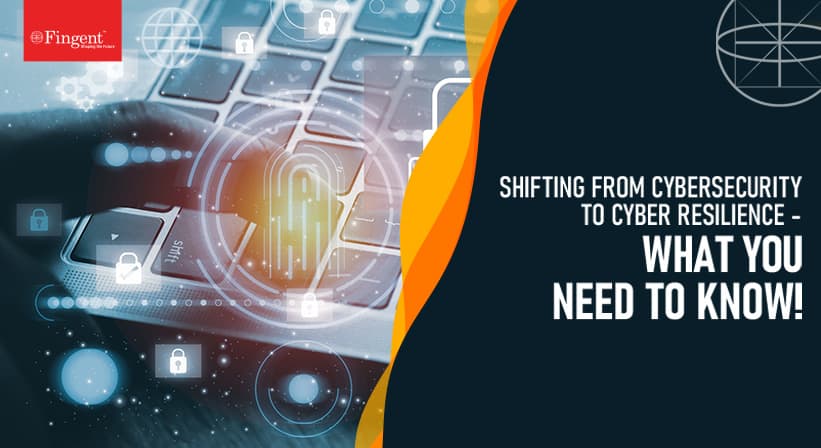Top 5 Best Practices to Manage Enterprise Mobility
What seemed to be a far-fetched idea or an unclear, undefined entity, a few years ago, is what is ruling the world of business today. Enterprise mobility.
People are all for the concept of “bringing their own devices” at their workplaces these days. More than 60% of workers have access to their company data or work through their smartphones and tablets. Interestingly, only about a third of business enterprises have any kind of BYOD (Bring-Your-Own-Device) management strategy in place.
“People are bringing their own devices, but in many cases, they and their companies are not taking care of those devices and the applications on them appropriately.”, says Richard Absalom, consumer impact technology analyst at Ovum.
It is very important to have a proper Enterprise Mobility Management strategy for every organization, especially since most of them are spending a pretty significant amount on mobility.
Here is what you can do to better manage enterprise mobility.
Involving Everyone
Any BYOD policy has to be developed with inputs from all over the organization. Driven by the CIO, BYOD management efforts should involve everyone from developers to users to the IT team. Even the human resource and legal departments have to be included. As it means an entire culture change in the organization, it necessitates the need for everyone to be on the same page, about what can and cannot be accessed over personal devices.
Smartphone Technologies
 The use of mobile devices automatically implies the use of various technologies offered by them such as Global Positioning System (GPS) receivers, cameras, audio recorders and other sensors. Widespread use of such technologies across the organization may cause loss of data and even loss of important intellectual property to be looming concerns. Imagine the consequences of loss of an in-house video of an application’s development processes! Worse yet, are the legal implications of the same, or of other videos involving the organization’s officials in compromising positions. Hence, BYOD policies should be formulated after taking into consideration these aspects as well.
The use of mobile devices automatically implies the use of various technologies offered by them such as Global Positioning System (GPS) receivers, cameras, audio recorders and other sensors. Widespread use of such technologies across the organization may cause loss of data and even loss of important intellectual property to be looming concerns. Imagine the consequences of loss of an in-house video of an application’s development processes! Worse yet, are the legal implications of the same, or of other videos involving the organization’s officials in compromising positions. Hence, BYOD policies should be formulated after taking into consideration these aspects as well.
An Exit or Loss Policy
While devising BYOD policies, something that people generally tend to miss out, is an exit strategy. When an employee in any department of an organization leaves, he will be carrying a lot of information concerning his department on his smartphone, with him. This is a huge loss for the organization.
“When an employee leaves, say in sales, and they take all of the contacts on their personal phone, that is a big corporate asset that goes missing.”- Absalom
Hence, you need to develop appropriate theft, loss as well as exit policies. Along with technical issues you need to raise the security stakes. You need to find a balance with all these features and risks, so as to protect your employees’ personal information as well as your business reputation.
Insecure WiFi

User Credentials
Credentials for users, such as usernames and passwords, need to be created securely with utmost care. Credentials which may be sufficient for certain kinds of applications may not be suitable for other kinds of applications that need more security. Short number strings for example,while may be appropriate authentication for a user on game leaderboards and scoreboards, they won’t be enough for a social networking application.
All of these practices call for crisp and clear policy guidelines. Their compliance needs to be made mandatory as well. You need to make sure that all your employees are well aware of the rules regarding joining, leaving or altering their role or participation in a BYOD initiative. Signatures on policy agreements need to be made compulsory. Absalom also said that it would be good to have all employees agree to legally upholding their policies and to getting their devices locked on events of it being stolen, lost or compromised in any way.
Hence, if well managed, enterprise mobility can be the best thing that ever happened to your business. Keep the above pointers in mind, embrace mobility and manage it efficiently.
Stay up to date on what's new

Recommended Posts

07 Jul 2022 B2B
Shifting From Cybersecurity to Cyber Resilience – How Are They Different From Each Other!
Cyberattacks are hitting the headlines with increasing frequency. Data breaches and attacks are currently inevitable parts of running an organization. Cybercriminals are adept at using phishing, malware, or insider threats……

02 Nov 2021 B2B
Thinking Beyond Cloud Migration: Unlocking Opportunities with Cloud Continuum!
The “cloud” is a part of an evolution in IT services. IT services took the mainframe and turned it into the cloud. In the beginning, the on-premise IT department was……

25 Jun 2020
What Is Fog Computing and How Does It Work?
How Can Your Business Benefit from Fog Computing? How much data do we create every day? The World Economic Forum reports that the entire digital world is expected to reach……

27 Nov 2019
AI and Facial Recognition: Innovative Advances & Future Impact
Facial Recognition Technology - What’s In Store For The Future When Facebook started automatically tagging faces in uploaded images, nobody realized that this facial recognition technology would hike up to……
Featured Blogs
Stay up to date on
what's new




















































